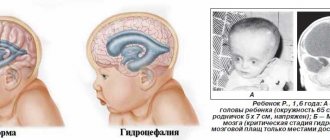Origin of the disease
The emerging personality of a toddler depends on many internal and external factors, which, in turn, under certain circumstances cause a similar disease. The main reasons are:
- Socio-cultural are related to the problems of life in large cities. The occurrence of psychoneurosis can be associated with a lack of the required amount of time for proper rest.
- Socio-psychological ones are associated with emotional isolation of the baby, for example, long house arrest or conflicts. Another difficulty occurs in prosperous families. Only group therapy will create positive conditions for the formation of children.
- Socio-economic arises in the absence of the required conditions for comfortable living. At the same time, mothers often go about their own business and do not devote the required amount of time. Also, the child may lack things that his peers have. Recently, socio-economic has become much more common.
Somatic pathologies that have a direct impact on the nervous system are quite important. Increased sensitivity to psychological influences determines that the child reacts sharply to even minor control from the outside world.
Recently, doctors are increasingly paying attention to the fact that a symptom of prolonged use of the Internet disrupts the central nervous system. This is associated with a large flow of various information; it is almost impossible to protect children from sources of fear and emotional distress.
Where to start treating neuroses?
Go to specialists who comprehensively examine the child’s body. By the way, from the above it follows that children with chronic diseases (including those suffering from allergic reactions) are prone to neuroses. Early diagnosis of symptoms and prevention, observation by somnologists, neurologists and psychologists will help to adapt to society, avoid neurotic manifestations, and strengthen the nervous system.
Such comprehensive examinations are carried out at the LINGUABONA clinic. Experts say that by starting to solve the problem at an early stage, you can achieve excellent results. Having understood the grain of the problem, they begin to select methods of treatment, rehabilitation, and select the necessary medications.
Neurosis - signs, symptoms, treatment methods
In medical practice, they are divided into many types, but only some of them can occur in childhood.
According to the results of studies, boys most often suffer from obsessive neurosis. Some actions by the child, which mothers do not immediately pay attention to, indicate difficulty. The most common signs are:
- Tiki. Muscles are capable of making involuntary contractions due to improper functioning of the system. Blinking, convulsions, twitching, and prolonged sniffing are perceived as the main signals. Over time, tics get worse if left untreated.
- Annoying movements. They are not immediately noticeable. Some children twirl their hair around their fingers, others tug at their earlobes or crack their fingers, occasionally bend over, and others bite their nails.
- Bad habits. Habits associated with thumb sucking or nose picking are considered to be distinctive features of obsessive-compulsive behavior in children; they specifically damage materials. Some people do not pay attention to other signs of the appearance of neuroses.
Neurasthenia will cause sleep disturbances or loss of appetite, panic attacks or panic. At the same time, children are not willing to tell their fathers about panic.
Doctors are concerned about obsession, which manifests itself in childhood up to 3 years. Usually they indicate severe disorders, the result of the evolution of which is to disrupt the functioning of the central nervous system. Requirements related to examination and recovery, treatment of neurosis are somewhat different, since the cause is a genetic discrepancy.
Actions that a child takes without thinking are also the main ones of a similar question. Obsessive-compulsive disorder will become a reason to walk along a certain route or underline letters.
The symptoms of obsessive-compulsive disorder are:
- The emergence of absurd thoughts, which ultimately lead to the development of fears.
- Anxious doubts regarding your actions or others.
- Actions that make no sense and are repeated over and over again.
- Performing various actions aimed at temporarily eliminating a panic situation.
- Fear of doing the wrong thing.
Only an experienced doctor knows all the signals indicating disorders.
Adults are accustomed to solving treatment issues with psychotic patients by taking antidepressants. With children, you should immediately contact a healthcare professional, since neurasthenia is a cause of failure. The specialist will recommend:
- Quarrels must stop, as well as showdowns. Comprehensive care involves creating an environment in which the child will feel cared for and loved.
- The hardest thing is to help a child overcome his fear. To do this, you need to create conditions for frank conversations.
- It matters how much a teenager spends on the Internet or using various gadgets. Walking outside has a beneficial effect on your mental health.
- After consulting with a specialist, many decide to enroll their children in a sports section or dance. Similar classes include communication with peers, physical development and relaxation of the soul.
Functional problems associated with stress can be eliminated by scheduling your child to see a professional. He will be under the supervision of a psychologist, who will also give instructions to his parents. If the difficulties are due to impaired functionality of brain cells, psychologists may prescribe various medications or undergo therapy with a psychiatrist.
Children often behave differently with others. Parents and teachers should pay attention to any discrepancies. The main criteria for determining effectiveness include psychological well-being and the absence of anomalies.
A wide variety of time is allocated for elimination. The timing depends on various factors:
- Neglected condition.
- Source of education.
- The methodology used.
- Home furnishings.
It is necessary to carefully monitor your own children at the time of personality formation.
Obsessive movements
This was expected. The American and European Association of Psychologists and Psychotherapists (divisions of children's mental health) proposed to classify obsessive movements in children into a separate block of diseases that require mandatory assistance and correction without the help of drugs that suppress the functioning of the psyche.
Unfortunately, during quarantine the number of cases may increase. Stress; Parental anxiety and conflicts these days may contribute.
What kind of obsessive movements?
- thumb sucking for children over 6 months;
- nail biting;
- navel torsion;
- rubbing any parts of the body of oneself or loved ones;
- twisting or sucking hair;
- fiddling with blankets and familiar pieces of fabric;
- lip biting.
And a number of other manifestations that most often occur during:
- falling asleep
- when bored
- under stress
- when watching cartoons or reading books.
If you notice such movements and know that they last for more than a month, your child needs help! Ideally, a neuropsychologist or psychologist.
Categorically:
- don't suppress
- don't punish
- don't blackmail.
It is estimated that every 5 children experience this condition. I have written about the reasons and what to do ourselves hundreds of times. Let's repeat.
Let's move on to the reasons - this is a list of them, confirmed by research:
- emotional and physical overload of the child. This also explains the increasing growth of these conditions. Children are loaded with lessons from birth; forced to read and write early. They do not take into account the child’s need for play activities and free play. And, by the way, !!️When I tell my parents about the need to reduce the load, I often hear “it’s better to continue biting my nails (or call another condition).”
- hereditary predisposition and example of loved ones. If dad pulls out hair (or any other condition), then there is a high probability that the child will.
- oppressive parents suppressing the child.
- conflicts in the family, then after obsessive movements the child calms down.
- traumatic weaning when mom disappeared for several days.
- consequences of stress from injury, fear, etc.
A child may have one reason or a whole complex.
What to do?
- Now it is recommended to completely abandon suppression methods, for example, smearing bitterness on your fingers. Or swaddling so that he couldn’t reach his hands.
- it is necessary to understand and remove the cause. Whatever you do without this, everything will be useless. If a child has obsessive movements, say, due to overload, then it is impossible to solve the problem without removing it.
- decreased attention! If you are always tugging or shouting: “Don’t meddle, don’t touch, don’t twist; don't suck; don’t bite” - it will only get worse.
- The problem must be solved before 5-7 years, then it is much more difficult. And it’s so very difficult for adults (Why do you need to clean? As a child grows up, it becomes increasingly difficult to cope with emotions and at the same time he understands that, say, thumb sucking is bad. The result is severe degrees of neuroses; hyperexcitability; or, conversely, apathy. And also injuries. Purulent navels ; injuries to the fingers and lumps of hair in the stomach, which are removed by doctors. And also, mentally and physically tormented parents. Who are rubbed and not allowed to simply sleep.
- working with a psychologist and neuropsychologist will help you find the cause and begin treatment.
- I talked about fairytale therapy.
- The effectiveness of animal therapy has now been proven! Moreover, for children who suck their fingers; picking belly buttons, etc., are more suitable for horses; hairless cats and dogs with short hair. But for children who have problems with hair (twisting or chewing), animals with long hair are more suitable.
- give the suffering parts of the body the characteristics of living objects. Finger pads from a puppet theater for fingers. Put it on and play, calling names. Or draw a face where the navel will be the nose and tell a fairy tale about it.
- distract the child and redirect attention.
- massage your fingers, doing a deep finger massage. For any form of obsessive movements. On the Internet you can find excellent therapeutic tales for any type of obsessive movements.
- Put away tablets and TV, because it is during viewing that they often appear. Replace it with reading when you read while your child sculpts or plays with kinetic sand.
- Don't worry that it will rot and so on. Tell only the truth! What can get sick, turn red, etc.
- For children over three years old, show in a book why this or that part of the body is needed, talk to them as if they were an adult.
- Take care of your child. This category of obsessive movements is killed when the child is loaded with your attention. At least for the duration of the distraction, immerse yourself in the child 500%.
Well, something like this from general advice. The rest needs to be resolved through family therapy and searching for the cause.
Features in children
It is necessary to begin recovery when the first signs appear. In children, they are coordinated with emotional crises that arise during conflict or constant showdowns. Involuntarily repeated movements appear even with a protracted course of the disease.
Hysteria is shown in different ways. The course of the disease and its severity depend on:
- Gender and age. Children of different ages react differently to stressful situations.
- Specifics of the living environment. Such factors are security, their way of existence, moral principles.
- Temperament.
Bad behavior is also perceived as the body's reaction to stress. If there is a sudden change in mood or character, you should definitely contact a healthcare professional.
Progression and consequences of non-treatment
There are quite a few methods, the choice is made in accordance with the results of the survey. Progression in childhood is rapid, since the personality has not yet been formed.
Any neuropsychic childhood crises tend to be compensated over time. No diagnosis is considered a life sentence, but if the difficulties are not addressed in a timely manner, then it will become the culprit for interruptions in consciousness and the formation of tics.
As a rule, hysteria is considered a sign of stressed well-being. In adults, annoying measures persist because they are the culprit of deeper dysfunction.
Causes of neurosis
The cause of the disease can be any mental trauma: a violent quarrel, severe fear, excessive anxiety or aggression. It could even be simply coercion to perform some undesirable actions for a person. In some patients, the appearance of neurosis can be triggered by a single severe stress, and in others, by chronic exposure to stress factors.
Obsessive movements will persist until the cause of the neurosis loses relevance, that is, while the person is in a state of internal conflict, for example, when there is an illicit desire and a moral attitude that prevents it.
It is necessary to distinguish between neurosis of obsessive movements and neurosis-like hyperkinesis. They have exactly the same manifestations, but different causes. In neurosis, psychological mechanisms play the main role, and in hyperkinesis, the cause is damage to the nervous system. Therefore, at the initial stage it is necessary to conduct a detailed examination of the patient, otherwise treatment may not be effective.
Recovery in hospital (round the clock, complex, tests)
The arrival of the first differences becomes the motive for seeking help from a neurologist. The specialist examines and examines the baby. Drug treatment is prescribed extremely rarely, in most cases for cellular and other interruptions.
The diagnosis of “neurosis” is carried out in several stages. The sequence is as follows:
- To find the required answer, central nervous system destruction and genetic defects are first tested. This kind of precedent is extremely rare. Genetic abnormalities can only be identified through complex examinations. Therefore, you need to contact a clinic that specializes in solving this kind of difficulty.
- Some signs indicate the consequences of injuries or the onset of other serious illnesses. Examples are severe influenza, encephalitis, traumatic brain injury and others. At this stage, the disease associated with the dysfunction is determined, for which different tests and analyzes are carried out.
- The most common difficulty is discord that arises due to dramatic situations. Even conflicts in the yard or frequent quarrels influence her. The assessment is made through ongoing communication.
Collection of tests is carried out to search for ailments, which turn into a motive for the release of mental disorder.
Psychotherapy is the most common method. The hospital has the following characteristics:
- The patient is under constant observation.
- Groups are being created. Communication with peers has a beneficial effect on consciousness.
- The drug is used in extreme or neglected cases.
Inpatient treatment is prescribed in isolated cases when the home does not provide the proper environment. After the difficult period has passed, the child will be able to return to his normal existence.
Self-medication (harm, consequences, undesirability, danger) call to consult a doctor
Self-medication can be considered a bad decision. Parents are unable to independently provide proper assistance to the baby for a number of reasons. The consequences of a lack of professional help from a psychotherapist are as follows:
- Destruction of the psyche. It manifests itself as an inadequate reaction to life situations.
- Output of ticks. They are coordinated with loss of muscle control.
- Personality destruction. This complication is noticeable in severe episodes.
- The body becomes less resistant to stress and other ailments.
Regardless of what reason led to the occurrence of mental deviations, you must contact a professional. Some measures develop into a habit, and the baby will do them constantly.
Outpatient program, remission
The work of the psychotherapist is coordinated with the identification of the mood. The complication was first described in 1617 and today a project is used that is highly effective. The outpatient program contains the following features:
- After a certain amount of inpatient treatment, the course is implemented in an outpatient setting. This stage is required for the baby to learn and get used to life in his family.
- An important prerequisite is the lack of a tense situation. If quarrels are repeated, the project is disrupted.
- Parents and experts pay attention to activities to restore social connections. The lack of friends leads to the fact that the problem will develop into a syndrome.
Taking certain herbs and foods, and other folk methods speed up remission. Recovery is facilitated by:
- Taking a calming herb, such as valerian or lemon balm. Antidepressants are prescribed exclusively by an expert and are not recommended to be given on your own.
- Before bedtime, you can give your baby milk and honey. A similar combination is also calming.
- You can take a bath with sea salt, mint or lavender. Warm water has a relaxing effect on muscle tissue.
- We need to spend more time with the baby. In this case, you should choose some game or activity in which he can achieve success.
By changing the atmosphere at which the blood vessel stays, for example, during the holidays, you can contribute to its treatment. When you move to another area for temporary residence, your social circle changes.
The little child's physical activity is controlled for his safety. Some measures lead to injury.
Prevention
By considering each factor that becomes a stimulus for the phenomenon of neurological abnormalities, it is possible to develop effective prevention. The most popular recommendations are:
- Development should not lag behind the evolution of peers. Otherwise, he will feel inferior, this will lead to complexes. To do this you need to work with him.
- There should be a favorable environment in the family. You can count on positive success only if there are no scandals at home.
- In the modern world, a change in consciousness occurs under the control of the Internet and gadgets. The strongest natural antidepressant is prolonged exposure to fresh air and active recreation.
- Periodic frank conversations will allow him to promptly identify fears and help him overcome them.
In most cases, no prophylaxis is required. If your blood does not show any reaction to the influence of the surrounding world, stressful situations, then it is enough to provide a favorable environment at home and psychosthenia will not appear.
If appropriate therapy was carried out independently under the supervision of medical staff in youth after 8 years, then it will disappear almost without a trace. If the indicators appeared in childhood from 3 to 6 years, then they appear in the period 8-11 years. Obsessive treatment can be carried out at any age, but later withdrawal is more difficult.
Even in the most difficult cases, one should not forget that psychosthenia is treatable and in almost all cases its indicators are reversible. A preschooler can fully recover and return to normal life. Various clinics have developed their own methods, which are characterized by their own characteristics. Therefore, before applying, you need to study the plan in detail.
It is much easier to prevent than to eliminate it later, so it is necessary to create the most comfortable living conditions. Otherwise, the existing pathology will not be treated and will lead to complications.
Prevention and prognosis
The main preventative measure for obsessive movement syndrome is a healthy lifestyle. This especially applies to persons with a hereditary predisposition to the disease. Experts recommend that such people do not neglect rest, get enough sleep, exercise, and develop personal qualities. People prone to neurological disorders should be monitored by a doctor.
Obsessive movement syndrome has a favorable prognosis and can be successfully treated. It is extremely rare that it becomes chronic with alternating periods of exacerbation and remission. Exposure to provoking factors leads to a deterioration in the general condition of patients. Patients need to create a calm home atmosphere, protect them from negative emotions, and help them take their place in society.
In the absence of adequate treatment, symptoms of the disease can manifest themselves for years. Complete cure of patients is possible only after serious complex treatment in the clinic.











